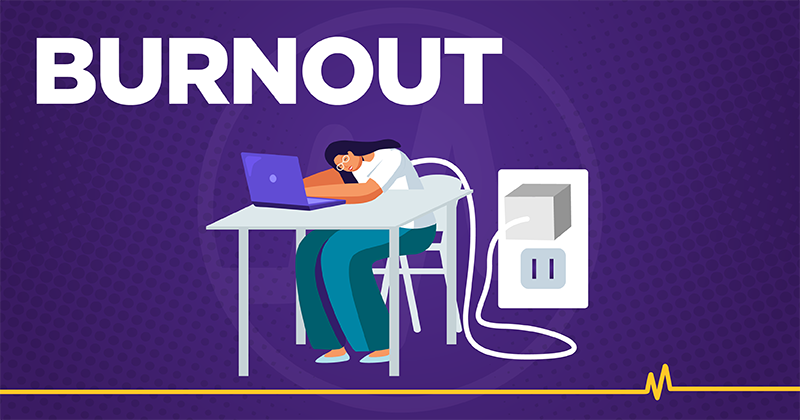Physician Burnout and the Stigma of Doctors Seeking Mental Health Support

This blog was originally published on February 28, 2022, and updated on March 29, 2022.
There has been a lot of talk about burnout and physician mental health. Much of that talk centers around burnout — which WebMD defines as “an emotional, mental and physical reaction to constant stress.”1 This often can lead to decreased work performance, either real or perceived. However, physicians and others who suffer from burnout can also be at risk for anxiety and depression, substance abuse and suicide. Every year, an estimated 300 doctors die by suicide, which is almost twice the rate of the general population.2
A stigma magnified by higher expectations
The world expects so much from physicians (something you may know something about). After all, physicians graduate from medical school and residency programs, they’re the leaders of their medical teams, they’re the pride and joy of their families — oh, and they also happen to save lives. They are the closest thing we have to real-life superheroes. But for some, these higher expectations lead to perfectionism and added pressure.
When physicians are suffering from burnout or mental health issues, they, in true superhero fashion, try to handle the situation themselves. In a 2021 survey, 57% of physicians said they had experienced inappropriate anger, anxiety or tearfulness due to COVID-19-related concerns, while 61% report experiencing feelings of burnout often.3 Yet only 14% have sought treatment to address pandemic-related mental health concerns.3
Why are physicians not seeking out the support they need? Some physicians say they worry that their colleagues might find out, that they’ll be forced to pay more for medical malpractice insurance, or that they’ll lose hospital privileges or even the right to practice medicine.4
To help remove some of these barriers, organizations like the American Medical Association are updating their guidelines and policies and pressuring others to do the same. Helplines and other services have also popped up, offering physicians confidential ways of getting support.
Physician disempowerment
The medical industry is a bureaucracy made up of insurance companies, pharmaceutical companies, hospitals and regulatory organizations. Physicians must answer to all of these entities to perform certain aspects of their job, treat patients and get paid. This can lead to additional pressures, documentation and red tape, and overworked physicians who feel like the practice of medicine has taken a backseat to making money. A possible remedy for this? Ensuring that physicians have a voice in the creation of the policies they must abide by and the technology they use every day. Even better: Make sure physicians are always at the table when decisions are being made — on staff, on the board or in the C-suite.
EHR burnout
In a recent study, 74.5% of all respondents who reported burnout symptoms also identified their EHR system as a contributing factor.5 However, whether an EHR contributes to burnout or works to relieve it depends largely on its design. If your EHR is intuitive and designed to support your workflow, it can help combat the chaos that plagues so many busy practices and medical centers.
Burnout and mental health support
For physicians who don’t like telling their war stories to friends and family (and many don’t), confidential peer-to-peer helplines and support programs like Physician Support Line and Virginia’s SafeHaven program have shown promise as ways for physicians to get the help they need in a safe space.
If you believe someone you know is at risk for suicide, call the National Suicide Prevention Line at 1-800-273-8255.
This blog is intended for informational purposes only and does not constitute legal or medical advice. Please consult with your legal counsel and other qualified advisors to ensure compliance with applicable laws, regulations and standards.




